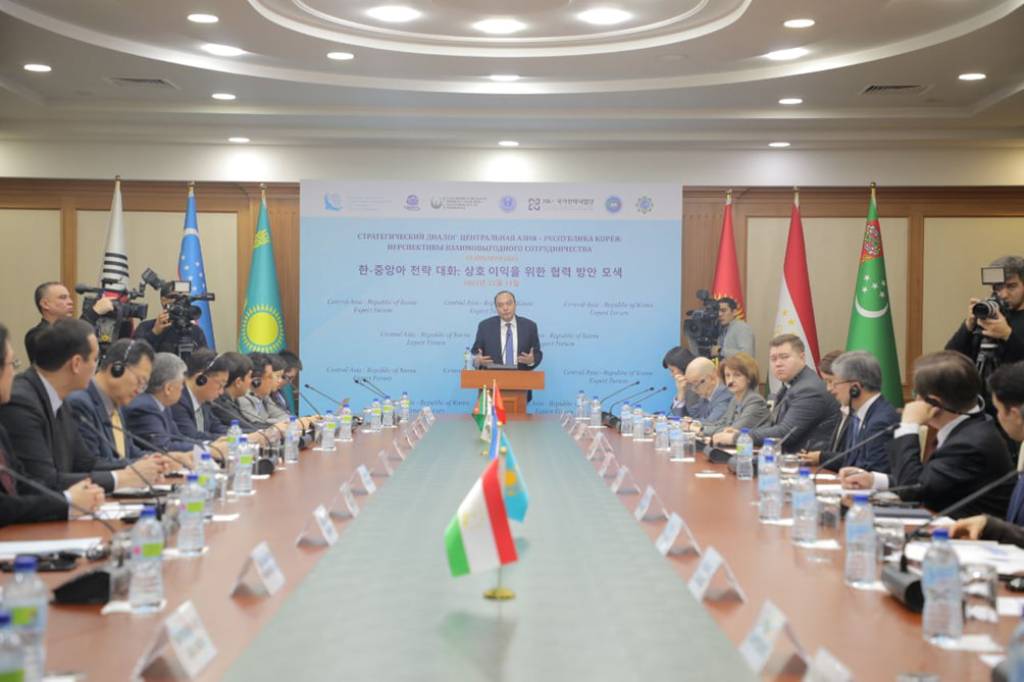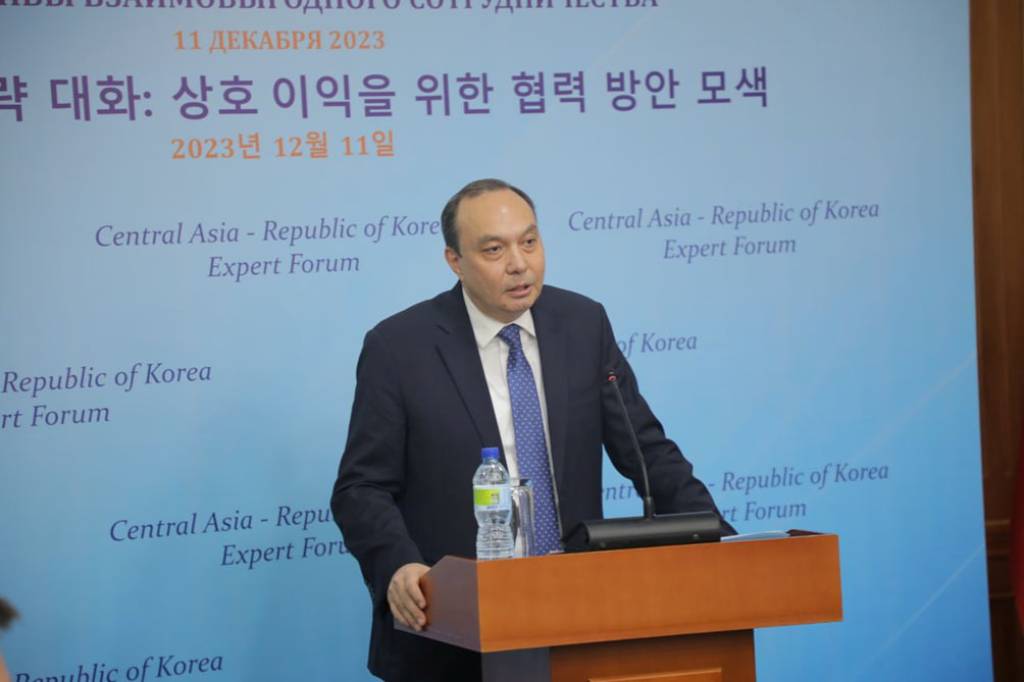ISRS Director: The dynamic transformation of Central Asia opens up new and untapped opportunities for Korea
글쓴이 :
최고관리자
등록일 :
2024-01-02 09:21:43
조회수 :
10,228회
글쓴이 : 최고관리자
등록일 : 2024-01-02 09:21:43
조회수 : 10,228회
| 링크 #1 https://uza.uz/en/posts/isrs-director-the-dynamic-transformation-of-central-asia-opens-up-new-and-untapped-opportunities-for-korea_546921 | 클릭수 7812회 |

Speaking at the expert forum on “Strategic dialogue between Central Asia and the Republic of Korea: Prospects for mutually beneficial cooperation”, Director of the Institute for Strategic and Regional Studies Eldor Aripov outlined the main directions of interaction between the Central Asian states and the Republic of Korea.
Addressing the event, the ISRS Director emphasized that the level of cooperation achieved does not reflect the enormous potential that the countries have accumulated.
According to him, Central Asia’s share in South Korea’s foreign trade turnover is less than one percent ($1.4 trillion). Even for the region’s states, the trade volume with Seoul is not high and is at four percent ($225 billion) of the total.
It was emphasized that the dynamic transformation of Central Asia opens up completely new and untapped opportunities for Korea and other external partners of the region.
Today, Central Asian states demonstrate a solid determination to move further towards closer cooperation and express their readiness to create a new economic development in the region based on competitive advantages and complementarity of economies.
In this regard, according to him, the primary task is to determine the search for new points of contact, identify current areas of cooperation, and develop specific proposals to strengthen multilateral interaction significantly.

First, he emphasized that further deepening cooperation in the scientific and technological sphere and digitalization presents excellent prospects.
Remaining one of the world leaders in developing the digital economy, Seoul can become a promising partner for Central Asian countries interested in introducing new technologies and innovations in healthcare, agriculture, and the green economy.
Second, the expert noted an objective demand for joint human capital development.
In particular, expanding cooperation in education, mutual academic exchanges, training personnel in technical and engineering specialties, and middle-level management personnel seems relevant.
There is already positive interaction experience in this direction. For example, branches of 4 South Korean universities operate successfully in Uzbekistan.
Training specialists of the new formation can become the supporting structure of mutually beneficial multilateral cooperation, which will give interaction additional stability, facilitating the effective implementation of joint projects.
Third, according to Mr. Aripov, South Korea, in cooperation with Central Asian states, can concentrate on deep processing of raw materials and industrial collaboration, followed by production of products with high added value and their sale in the markets of third countries.
Fourth, the ISRS representative believes that adaptation to climate change and the widespread introduction of green technologies is an equally important area. Central Asia is today the most vulnerable region in the world to the effects of climate change.
Here, attracting South Korea’s rich experience and investments in developing renewable energy sources and introducing modern resource-saving and environmentally friendly technologies can play an important role.
“I hope that these areas will be discussed today. Their list is inexhaustible. But they could significantly enrich our interaction. Adapt it to our real needs”, Eldor Aripov concluded.
G. Khonnazarov, UzA





 관리자
관리자